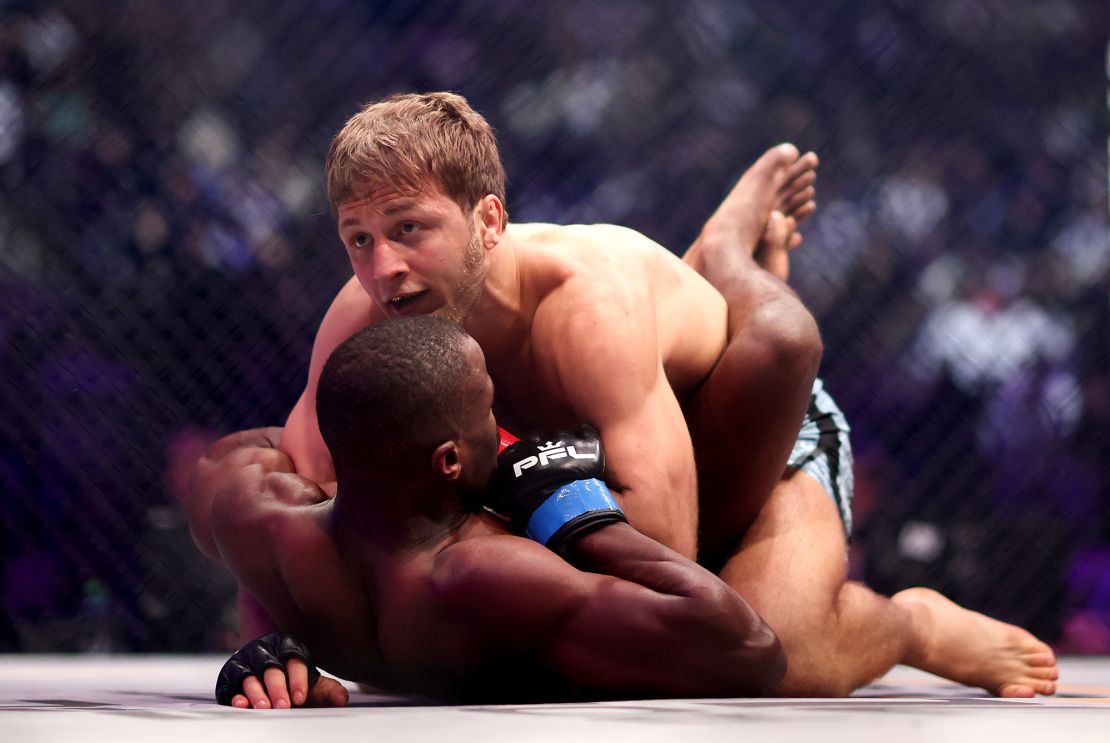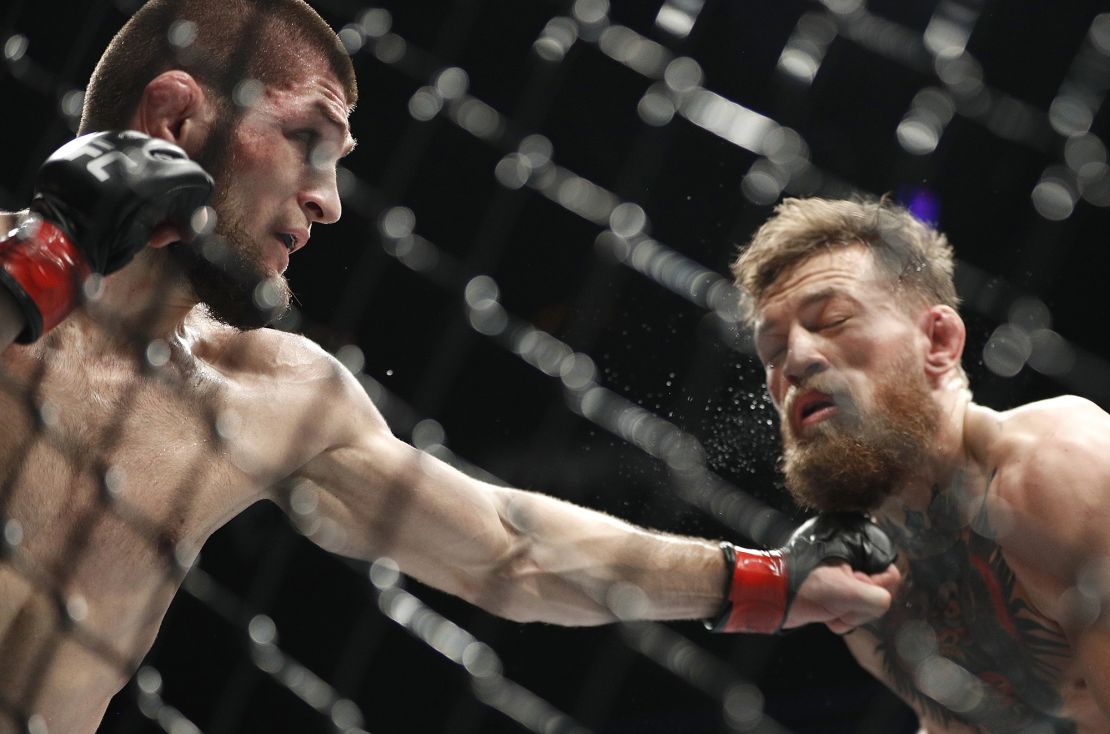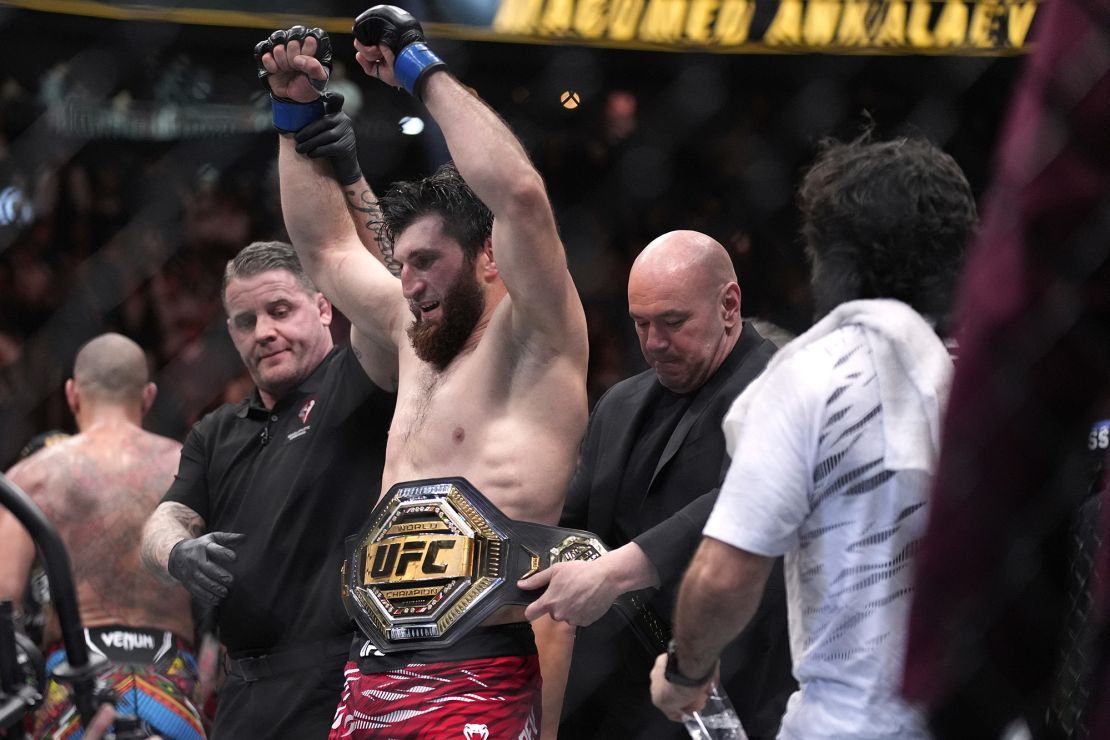长沙U币即时支付|【唯一TG:@heimifeng8】|Telegram账号盗取破解版✨谷歌搜索留痕排名,史上最强SEO技术,20年谷歌SEO经验大佬✨Dagestan: Why this region of Russia produces so many MMA champions
 By Ben Morse, CNN 7 minute read Updated 10:57 AM EDT, Thu April 17, 2025 Link Copied! See your latest updates
By Ben Morse, CNN 7 minute read Updated 10:57 AM EDT, Thu April 17, 2025 Link Copied! See your latest updates 
Ibragim Ibragimov’s latest victory over Kenny Mokhonoana kept alive his unbeaten start to professional MMA fighting and his status as one of the most exciting prospects in the sport. But in the hours after the win, the 20-year-old was quick to praise all the help he received in his preparations.
Ibragimov posted a photo on his Instagram of his training staff in Dubai, a group which included two of the greatest MMA fighters ever in Khabib Nurmagomedov and Islam Makhachev.
View this post on Instagram
Perhaps it is no surprise that Ibragimov has had such success – he is 9-0 in his blossoming career with his sights set on the top – when he has such legends in his corner.
Ibragimov is the latest in the production line of mixed martial arts talent to come out of Dagestan, Russia, with Nurmagomedov and Makhachev acting as figureheads and role models for the new generation.
For a region with a population of just over three million – smaller than Los Angeles – it has become renowned for churning out top-level fighting talent, famous for their wrestling abilities and never-say-die attitude.
Ibragimov – who fights in the Professional Fighters League (PFL) – is part of the most recent generation of Dagestani fighters who are taking over the sport, and he says that for he and compatriots, fighting is a way of life, not just a profession.
“In Dagestan, guys really want to be fighters. In the whole of Europe, there’s not many guys who really want to be fighters,” Ibragimov told CNN Sports. “They just pretended like they are fighters. They want to be like fighters. They want to be like someone.
“But in Dagestan, there’s so many guys that really want to be fighters. Not all (European fighters). I’m not speaking for all of them, but I’d say like 30% or 50% of the guys, they don’t really want to be there. They just go in there for a hype and stuff like that, for Instagram.”

‘Despair from a young age’
While fighting might be a walk of life for some, it’s more than that for many Dagestanis.
Michael Lyubimov, a famed MMA coach who has worked with many Dagestani fighters including Nurmagomedov, explained that when he often first encounters athletes from the Russian republic upon their arrival in the US, they are already vastly experienced.
Lyubimov – who is general manager of the Jackson Wink MMA Academy in New Mexico, renowned for its production of MMA talent – says that many young Russians take up fighting out of “despair from a young age.”
“Back where they come from, there’s absolutely nothing. A lot of these guys that come here, I mean, they fought since they’re like six years of age,” Lyubimov – who was born in Moscow before moving to the US as a youngster – told CNN.
“By the time they get to the UFC or obtaining these big promotions or come to America, they have over 200 fights and stuff.”
He added: “There’s no other option. There are cauliflower ears everywhere. It’s just who they are. It’s in the culture, engraved in them.”
Lyubimov also highlights the faith of the fighters from the region as a reason for their success, with many of them practicing Muslims. That means they often don’t drink or party and choose instead to focus on their craft.
The combination of those factors breeds a relentlessness in Dagestani fighters, according to Lyubimov. He recounts an athlete once telling him that he “will die in there before anything happens.”
Many fighters from the region will put their bodies through significant hardship to sign with big-money promotions, often waiting until they’ve inked deals before undergoing the necessary treatment to heal their ailments.

Lyubimov highlights to CNN Sports the journey of Ismail Israilov, from neighboring Chechnya, who recently won a fight after dislocating his shoulder in the first round. Before coming to the US, Israilov had been in a truck accident in which he almost lost his hand and, at the age of 24, has over 200 street fights to his name.
When Lyubimov asked Israilov what his upbringing was like back in Russia, the Chechen detailed how he came to have the resilience he now displays in the octagon.
“‘My whole life was like, you have a piece of bread in your backpack, and you drive for like an hour and a half to wrestling practice, and sometimes you can’t make it because it’s so far away or whatever, so we’d just fight on the street and practice on the pavement,’” Lyubimov recounts Israilov saying.

“‘We live in the middle of nowhere in the mountains. You look one way and there’s nothing there, you look the other way and there’s nothing there. All we have left is to fight.’”
During his time as part of Nurmagomedov’s coaching team, Lyubimov spent plenty of hours in the gym with the former UFC great, in both the US and his native Dagestan.
Compared to the current commercial gyms he works in now, the centers in Dagestan are vastly different environments with their hyper-focus on discipline, says Lyubimov.
“In Dagestan, gyms are government funded or recreational where people can come in. A lot of it is somewhat free, to a certain extent, until, of course, they make it to the big level where they start paying coaches and they’re like at a higher level, professional level,” he said.
“But at the beginning level, most of it is free. That’s why if you see Khabib when he walks into the room, or when Abdulmanap (Nurmagomedov’s father) would walk in into the room, all the fighters get up, they line up, they bow down, they’re quiet, they don’t talk, they’re always on time, they don’t talk back to elders, they have absolute major respect.
“If you show disrespect to an elderly person or coach or whoever, your peers will put you in place and you can literally get slapped like by a coach and you will be quiet about it and you stand there and take the criticism and them yelling at you if you’re being a dumbass.”

Role models
That rugged upbringing builds character and toughness. For Lyubimov, this sets the perfect platform from which to build a career.
When Lyubimov starts working with Dagestani fighters, it is often a case of refining their skills rather than adding more to their repertoire.
“Obviously America is Mecca for making the name for yourself, right?” he explains. “The lights are much brighter when they hit the American promotions. So, it’s just about teaching the composure, keeping emotions under check, and refining the skills.
“It’s teaching them how to adapt and how to just refine their skills in general, just making better fighters, understand the game better, understand the rules better, understand what to expect better, get them to deal with medicals, with fight preparations, with weight cutting. The diet, the weight cuts, everything because they do it one way over there. They come here, then they have to kind of relearn, or learn new things.”
The golden example of having to adjust to the American system was Nurmagomedov, who arrived in the US as a little-known prospect and blossomed into the biggest name in the sport.
His rise to prominence in the UFC was the jumping-off point for Dagestani dominance across the Western MMA scene.
Between his grappling skills, undefeated record and his customary wearing of Dagestan’s traditional papakhaheadpiece in the ring, Nurmagomedov became the hottest topic in the UFC despite not getting involved in the war of words which often previews fights or helps build rivalries between competitors.
His popularity grew to a previously unseen level through his rivalry with Conor McGregor, and then he retired a few years later. Lyubimov, who helped train Nurmagomedov during his heyday, said that the fighter understood that he needed to engage in sparring matches to continue to build his profile.
Since retiring in 2025, Nurmagomedov has transitioned into a mentor for the next generation of Dagestani fighters. He has had a hands-on effect on the burgeoning career of Makhachev, who is the No. 1 ranked pound-for-pound fighter at the moment and the current UFC lightweight world champion.
Elsewhere in the UFC, another Dagestani – Magomed Ankalaev – became UFC light heavyweight champion in March, while there are other world champions in MMA competitions around the world from the Russian region.

Before his most recent fight in January, Ibragimov trained with Nurmagomedov and Makhachev in Dubai and says the experience in the gym with two of MMA’s luminaries and his Dagestani “brothers” was formative for his burgeoning career.
“When you train in Khabib’s gym, and then, especially when he’s in there controlling you, there’s no limits,” he told CNN Sports. “It’s like sometimes he doesn’t even set the timer for training. And then we just train non-stop. We just roll nonstop, until he says stop.”
Ibragimov explained that a young Dagestani’s MMA journey is made that much easier because the previous generation has already walked that path and is around to give advice where needed. “They already showed us the road that we have to follow,” he said.
Ibragimov – who moved to Manchester, England, as a youngster and has siblings who are part of the Manchester United academy – has a long journey ahead of him in his MMA career. But in Nurmagomedov, Makhachev and other Dagestani fighters, he’s got the perfect role models showing him the way to the top.